Darcia Helle's Blog, page 16
April 10, 2022
New Historical Fiction — MRS. ENGLAND by Stacey Halls
 Simmering with slow-burning menace, Mrs. England is a portrait of an Edwardian marriage, an enthralling tale of men and women, power and control, courage, truth and the very darkest deception.
Simmering with slow-burning menace, Mrs. England is a portrait of an Edwardian marriage, an enthralling tale of men and women, power and control, courage, truth and the very darkest deception.
,br>West Yorkshire, 1904. When recently graduated Ruby May takes a nanny position looking after the children of Charles and Lilian England, a wealthy couple from a powerful dynasty of mill owners, she hopes it will be the fresh start she needs. But as she adapts to life at the isolated Hardcastle House, it becomes clear something is not quite right about the beautiful, mysterious Mrs. England.
Distant and withdrawn, Lilian shows little interest in her children or charming husband and is far from the angel of the house Ruby was expecting.
As the warm, vivacious Charles welcomes Ruby into the family, a series of strange events forces her to question everything she thought she knew. Ostracized by the servants and increasingly uneasy, Ruby must face her own demons in order to prevent history from repeating itself. After all, there’s no such thing as the perfect family—she should know.
This captivating new feminist novel from Sunday Times bestselling author Stacey Halls is her third work of fiction and proves her one of the most exciting and compelling new storytellers of our time.
A Sunday Times bestseller!
Mrs. England
Author: Stacey Halls
ISBN: 9780778386315
Publication Date: April 12, 2022
Publisher: MIRA
Buy Links:
BookShop.org
Harlequin
Barnes & Noble
Amazon
Books-A-Million
Powell’s
London, 1904
I took Georgina the usual way home, east through Kensington Gardens toward Hyde Park. She had fallen asleep with a fistful of daisies, and I pushed the pram along the bridleway, nodding at the other nurses. Her shoes nudged the end of the cushioned carriage; she would soon outgrow it, and I felt a distant stab of mourning for the baby she had been. She could sit up herself now, which she did on fine days with the hood folded down; she loved to see the Household Cavalry with their piped uniforms and plumed hats, and ladies would put down their parasols to admire her.
I crouched to retrieve a woolen bear lying on the sand beside a pram. The baby’s nurse sat on a bench reading a novel and had not noticed. Behind her a tangle of small boys tore about the grass, bashing one another with sticks.
“Oh, thank you,” the nurse said as I passed her the bear. She took in my uniform, distinct from the other nurses’, designed to set Norlanders apart from the rest: beneath a smart brown cloak I wore a fawn drill dress with a white cambric apron edged with lace. At my throat a frothy cream tie completed the summer uniform. In winter we wore light blue serge, and all year round we did our heavy work in pink galatea, cleaning the nursery and making up fires.
“I wish she went off like that,” said the nurse. She nodded at the occupant of her pram: a slim, serious-looking child a little older than Georgina, who glared at me from beneath a white sun hat. “How old?”
“She’s seventeen months,” I replied.
“And look at her lovely curls. It’s a shame this one’s hair’s so straight. She pulls out her rags when I put them in.”
“You could try setting them when she’s asleep. If you wet the rags first, it’ll dry like that.”
The nurse brightened. “That’s an idea.”
I said goodbye and she returned to her book. We passed through Albert Gate, where black stags stood guard on the park railings, and I smiled at the old woman who sold windmills and toy balloons. The windmills waited rigidly in their crates for a breeze to stir them that August afternoon, and the woman spun one half-heartedly. She never smiled back, but I supposed I looked much the same to her as all the other nurses. We flocked to the park after lunch with our charges, occupying the lawns and benches, spreading blankets on the grass, feeding the ducks and pushing prams through the rose gardens. An hour or two later we’d pass her again, heading home for naps and paste sandwiches before taking the children downstairs to see their parents.
Georgina was the only child of Audrey and Dennis Radlett, though Mrs. Radlett was expecting again. I’d laundered Georgina’s linens in readiness and circled cots in catalogues to show Mrs. Radlett; Georgina would still be in hers when the baby came. The new arrival excited me, though I was yet to find a monthly nurse for feeding, and the prospect of sharing my nursery even for a few weeks caused a distant flutter of anxiety. For the top floor of number six Perivale Gardens was my kingdom, my domain: my office, schoolroom and workshop. Sometimes it was a tearoom, if Georgina wished to give her toys refreshment; occasionally it was a jungle, and the two of us would crawl on our knees on the carpet, hunting for lions and tigers.
Georgina’s hand opened, causing the daisies to scatter over her blanket, and deftly I swept them up and put them in my pocket. On the nursery windowsill I’d arranged in jars the f lowers we’d picked in the park, and I was teaching Georgina their names. Georgina already had an impressive vocabulary, quietly absorbing as I pointed at plates and spoons and toys and stamps. “Tag!” she’d declared one afternoon a few weeks ago, straining out of her pram to point at the Albert Gate stags. I’d felt a rush of pride and love for this cheerful, confident little girl, who everybody adored when they met, and who reflected adoration back at them.
On Knightsbridge, motorcars growled past carriages and choked the road with fumes. I glanced about at the redbrick apartment buildings, the hot potato man, the green Bayswater omnibus and the Chinese laundryman unloading fresh linen from his cart. Crossing sweepers stepped aside for ladies in wide hats on their way home from department stores, tailed by their maids laden with boxes. Perivale Gardens was a large, quiet square a few minutes from the busy thoroughfare. A score of houses stood around an oblong lawn, guarded by black iron railings and planted with cedars and rhododendrons. The Radlett home was tall and stuccoed, with smooth white columns flanking a glossy black door. At the top was the nursery, which overlooked the long and sunny garden, and the neighbors’ gardens either side. The Bowlers next door kept hens, and sometimes let Georgina collect the eggs.
The hall was empty and silent, and I carried Georgina upstairs, where she allowed me to remove her cream leather shoes and settled in her cot with a sigh. I closed the blinds and pulled the curtains, glancing into the street for a moment and seeing the butcher’s boy on his rounds with his basket. He went down some steps and a kitchen maid examined its contents at the door, piling packets into the crook of her elbow. My father did his rounds with Damson, our docile pony, A. May, High Class Fruiterer & Greengrocer painted in large white letters on the side of his cart. My brothers and I would fight over who sat at the reins with him as he steered us through the streets, waving at people. “You take the reins, Rhubarb,” he would say, putting them in my hands.
I closed the curtains.
At half past three, Ellen brought me a ham roll and a pot of tea, and I gave her a copy of Young Woman I’d read and a penny dreadful I hadn’t. I took a seat at the table beneath the window to eat, looking about to see what needed dusting; in summer, within hours of my morning clean, a thin layer of grime drifted in through the window and coated everything. On the bookshelf, the golden letters of my testimonial book winked from the black spine. On graduation day, the Norland Institute principal, Miss Simpson—who we fondly called Sim— handed them out from a gleaming stack. The books contained everything we would need for our fledgling careers, from uniform materials to blank pages for references. My photograph was pasted in the front, larger than I would have liked; I appeared stern and unsmiling, one hand resting nervously on the table beside me. At the end of my three-month probation, Mrs. Radlett had marked my needlework very good, punctuality excellent, neatness excellent, cleanliness excellent, order excellent, temper excellent, tact with visitors very good, tact with children excellent, tact with servants very good, power of amusing children excellent, power of managing children excellent and general capability excellent. I was awarded my certificate in the autumn and kept it inside my trunk. Some nurses had sent theirs home for their parents to frame, but I imagined handing it to my mother, could picture her bemusement that there was such a thing as a certificate for caring for children.
I’d finished my roll and begun tidying when there was a light knock at the door. “Come in, Ellen,” I called, moving the miniature globe an inch to the right and setting its equator. There was no reply.
“Mrs. Radlett!” I straightened at once. She was a young mistress, only a few years older than me at twenty-three or-four, and so gentle and feminine. A wide smile was the natural shape her mouth took, and pretty gowns and gleaming brooches showed her plump figure and creamy skin to its advantage. Her hair was the color of toffee cooling on the stove, and she wore it in all the latest styles copied from magazines. My own hair was thin and dark and would not be coaxed to any height. My skin turned brown easily, and since the Norland hat offered no shade, I took care to keep out of the sun.
“Good afternoon, Nurse May,” said Mrs. Radlett. She was good-natured and liked to tease; one of her favorite games was playacting at being grand and proper, though the joke was slightly lost on me. “Would you join me in the parlor when you have a moment?”
“Of course, ma’am, I’ll come now. Miss Georgina’s having her nap.”
I followed her into the house. The downstairs was far removed from my own quiet story, with its own rules and codes and timings, from which I was happily exempt. Nurses were not servants, existing in that tricky place between domestic and family, belonging to neither. Sim warned us it could be a lonely profession: friendless, she had called it. But I’d been friendless most of my life, and found only joy in the busy hours, and peace in the quiet ones. Every morning I took Georgina to the dining room, every evening to the drawing room, where Mr. and Mrs. Radlett devoted an hour to entertaining her before supper. Mr. Radlett played the piano while Mrs. Radlett danced with her daughter, lifting her into the air and guiding her fat feet around the carpet. They were as delighted to see her as if they’d been away a week, and sometimes Georgina sobbed as I carried her back to her nursery, reaching backward for her mama. “Up the wooden hill and down Sheet Lane,” I would murmur as we climbed the stairs, and by the time the nursery door was closed she had often forgotten her anguish. She sucked her thumb when she was tired, and I always removed it from her sleep-soaked mouth when Mrs. Radlett came to kiss her good-night.
The parlor was at the front of the house, seldom used and stuffy in summer, with the windows fastened to keep out the dust from the street. The blinds were closed against the heat, and the lace curtain hung flat against them. The Radletts’ house was tastefully decorated and filled with antiques; the mistress even had her own library. As a couple they were intellectual and political. They entertained often and friends called frequently at the house, filling it with cigar smoke and leaving sticky rings of sherry on the sideboards, decorating the hat stand with feathers and ribbons, like a strange tree of exotic birds. In the eaves of the building there was little to disturb me, but occasionally Mrs. Radlett asked me to bring Georgina down to kiss and pass around before bed. She always deferred to me, and was politely inquisitive about her daughter’s diet and routine; there was no doubt whatsoever who was in charge.
“Do sit down,” she said now. I took a seat in a stuffed armchair beside a potted fern.
“I have some thrilling news.” Mrs. Radlett placed a hand on her rounded stomach. She had recently begun to show beneath her waistband, and Ellen had let out her skirts. “I’ve been longing to tell you for weeks, but Mr. Radlett forbade me until it was all agreed and finalized, which it was last night, so now I can share it with you.”
I felt a glimmer of excitement and straightened my apron.
About the Author Stacey Halls grew up in Rossendale, Lancashire. She studied journalism at the University of Central Lancashire and has written for publicationsincluding the Guardian, Stylist, Psychologies, the Independent, the Sun and Fabulous. Both of her first twonovels, The Familiars and The Lost Orphan, were Sunday Times bestsellers, Mrs England is her third novel.
Stacey Halls grew up in Rossendale, Lancashire. She studied journalism at the University of Central Lancashire and has written for publicationsincluding the Guardian, Stylist, Psychologies, the Independent, the Sun and Fabulous. Both of her first twonovels, The Familiars and The Lost Orphan, were Sunday Times bestsellers, Mrs England is her third novel.
Social Links:
Author Website
Twitter: @stacey_halls
Instagram:@staceyhallsauthor
Goodreads

The post New Historical Fiction — MRS. ENGLAND by Stacey Halls appeared first on Quiet Fury Books.
April 8, 2022
New Suspense Novel — DISTORTED PERCEPTION by Trish Arrowsmith

 At twenty-six years of age, Kathleen has almost everything she needs: a fulfilling teaching career, a new car, and a recently purchased home. She dedicates her free time to her students, supporting them in a manner she never had growing up. Her days are filled with love and hope, but her nights are empty without a family to call her own. While spectating the first home baseball game of the season, she meets a man that she believes will change her evenings in the best possible way. With no children of his own, he committed his free time to bringing his young nephew to watch the game, hoping to encourage him to play. Kathleen is immediately drawn to him and sees him as a true family man.
At twenty-six years of age, Kathleen has almost everything she needs: a fulfilling teaching career, a new car, and a recently purchased home. She dedicates her free time to her students, supporting them in a manner she never had growing up. Her days are filled with love and hope, but her nights are empty without a family to call her own. While spectating the first home baseball game of the season, she meets a man that she believes will change her evenings in the best possible way. With no children of his own, he committed his free time to bringing his young nephew to watch the game, hoping to encourage him to play. Kathleen is immediately drawn to him and sees him as a true family man.
Maxwell is handsome, successful, and charming. When he proposes marriage shortly after they begin dating, Kathleen is eager to accept as the desire to start her own family consumes her. Within months of their marriage, Maxwell’s sweet, doting personality gives way to a more sinister, controlling side. Kathleen quickly realizes that while she was looking for a partner, Maxwell was looking for someone who existed solely to fulfill his needs.
When he suggests a move to the country, Kathleen is hesitant to leave her job but believes the change of atmosphere will be an opportunity to bring them closer together. She soon realizes the isolation of the countryside only serves to enhance his power over her. It doesn’t take long for her to learn the devastating truth of who her husband really is, and she finds herself left with two choices: She can try to escape and hope he doesn’t find her, or she can stay and fight the battle in which all odds are against her.
Book Details:Read an excerpt:Genre: Suspense, Domestic Suspense, Drama
Published by: Trish Arrowsmith Author
Publication Date: February 24, 2022
Number of Pages: 276
ISBN: 9781736755952
Purchase Links: Amazon | Goodreads
He reached out and grabbed her hand like he used to when they were dating. “We’re moving. Next week.”
“What?” Kathleen cried. “What do you mean we’re moving?” She pulled her hand from his.
“We’re moving to the country. I bought us a house out there.”
Kathleen went from being the happiest she had been in a long time to livid in a matter of seconds. Her whole body begin to shake. “We can’t move next week, Maxwell. I own this house. I’ll need to clean it and put it up for sale. It could take months.”
“Already taken care of, beautiful. You don’t need to worry about a thing.”
She cringed at his choice of the word ‘beautiful.’ “It’s going to take me weeks just to pack everything.” She sounded like she was whining but she didn’t care, this was a huge decision he made for both of them without consulting her. He had never even mentioned a desire to move, and certainly not to the country. She had never been outside the suburbs of the city. She was already feeling lonely and now she would really be by herself.
“No need to worry. I hired movers. They’ll be here Tuesday.”
“Tuesday? Like five days from now?”
Maxwell laughed. “Well, yes. What did you think I meant when I said next week?” He continued eating his dinner like this was a normal conversation they would have on any given day.
Kathleen had lost her appetite. She slid her plate away from her and shook her head. She was upset that she hadn’t gotten to tell Maxwell her news. She wanted to make it a joyous occasion for them both and it had completely lost its appeal. At least for now. She got up and left the table without eating any more. She needed some time away to process what he told her.
She stood in the bathroom for five minutes fighting back tears before she went to stand in the doorway of the kitchen. She leaned against the frame with her arms crossed. “What do you mean it’s already taken care of? Did you sell my house? How is that even possible?”
Maxwell’s eyes rolled toward the ceiling. After all this time she still didn’t seem to get it. Her naivety both humored and annoyed him. “You seem to forget rather easily that I’m a lawyer. There are so many things that I can do, so many things that I have access to, it would make your head spin. And yes, to answer your question, I did sell it. Got a pretty penny for it, too.” He smirked at her. “Did you make any dessert?”
Kathleen was furious that he had managed to sell her house without her knowing about it. She was sure his job gave him access to information like that, but it didn’t mean he had to abuse the privilege. How did he even know she bought the house outright, maybe she had inherited it from her grandmother or bought it from someone else in her family? She didn’t, of course, and she guessed he had access to that information as well, but this was the first house she had ever owned. She was proud of her little house. And considering it was hers, she would have liked to have some say in selling it. She decided now was not the time to ask him for specific details, but eventually she wanted to know why he sold it and how much he got for it.
She dropped a plate with a slice of Boston crème cake in front of him. The fork rattled and bounced from the plate to the table. Kathleen crossed her arms over her chest again and stared at him. “I know you have access to a lot of information but how did you manage to sell my house without my consent?”
Maxwell straightened his posture, he pulled back his shoulders, puffed up his chest, and smiled so wide it made Kathleen want to slap it off his face. “As a lawyer, I should advise you to read all forms and documents thoroughly before you sign them.”
Kathleen squinted and shook her head. “But I never…”
Maxwell howled with laughter as he watched the realization hit her.
Her mouth hung open and she sighed with shame. “Our wedding day.” Her arms dropped to her sides; her head fell forward.
He nodded his head and shoved a fork full of cake into his mouth. “What’s yours’ is mine.”
***
Excerpt from Distorted Perception by Trish Arrowsmith. Copyright 2022 by Trish Arrowsmith. Reproduced with permission from Trish Arrowsmith. All rights reserved.
Guest Post by Trish ArrowsmithIdeas are a dime a dozen. They can even come from one.
One of the most common questions asked of writers/authors is “where do your ideas come from?”. It’s an easy question to answer and also one of the hardest. It’s hard because it seems people expect an exciting, elaborate response. It’s easy because, for the most part, it’s a simple, quick answer.
As writer’s we can pull ideas from anything. If we have a blank page in front of us and we look over and see a cat eating a potato chip off the floor, we can turn that into a five page short story in about 30 minutes. And it can go in many different directions: maybe it’ll be about our love for our pets and how something so simple can bring them so much joy. It can be an elaborate story about how the chip ended up on the floor to begin with. It could turn into a rant about how we’ve worked so many hours over the past month, we’re worried about what else we may find since we haven’t eaten chips in over three weeks. Sometimes we don’t know what it’ll be until we start writing.
Have you ever gotten up on the morning of an interview and while you’re fixing your hair you imagine the interviewer asking you a question? In your head, you answer the question and make up an idea about how the interviewer will respond. Have you ever argued with someone and after it’s over you think of something else you could have said that would have ended the argument immediately? This is exactly what writers do. We make up those same scenarios, we just expand on the idea and write it down.
Writers also do a lot of word association. If we’re sitting in a coffee shop (cliché, I know) and we see someone walk in with bright green shoelaces in their sneakers, this is a possible thought process:
Green= green with envy
Envy= Jealousy
Jealousy= Jealous ex
Ex= Revenge.
And this is how we end up with a story about a woman stalking her ex-boyfriend’s new girlfriend. All we need is a pair of bright green laces.
For the two books that I have out, the first one, Nursery’s Rhyme came from me hearing the phrase “Itsy bitsy” on the television. My newest release, Distorted Perception came from me watching a documentary about a cult. From the show, I decided to write a book about multiple wives. (It is important to note, my book has nothing to do with religion/cults/sects. It is not mentioned, it is not implied, it is in no way based on religion in any form). I just thought it would be fun to write a story about multiple wives, so I did.
If you are one who is curious about where a writer gets their ideas from, you should let us know what kind of answer you’d like. We can certainly make up an exciting, elaborate story about where it came from or we can be honest, but you’ll probably be disappointed with how boring the answer may be.
 Trish recently moved across the country where she found her forever home, enjoying the desert sunshine and wildlife all year long. She was born and raised in a small town in northern Connecticut. Growing up, she was always fascinated by unsolved mysteries and true crime as well as the psychological elements behind them. As an avid reader, her go to books are thrillers, suspense, and true crime.
Trish recently moved across the country where she found her forever home, enjoying the desert sunshine and wildlife all year long. She was born and raised in a small town in northern Connecticut. Growing up, she was always fascinated by unsolved mysteries and true crime as well as the psychological elements behind them. As an avid reader, her go to books are thrillers, suspense, and true crime.
www.TrishArrowsmithAuthor.com
Goodreads
BookBub – @trisharrowsmith
Instagram – @trisharrowsmithauthor
Twitter – @author_trish
Facebook – @TrishArrowsmithAuthor
Tour Participants:
Visit these other great hosts on this tour for more great reviews, interviews, guest posts, and giveaways!
Enter for a Chance to Win!This is a giveaway hosted by Partners in Crime Tours for Trish Arrowsmith. See the widget for entry terms and conditions. Void where prohibited.
Get More Great Reads at Partners In Crime Tours
The post New Suspense Novel — DISTORTED PERCEPTION by Trish Arrowsmith appeared first on Quiet Fury Books.
April 7, 2022
New Release Spotlight — CRIMSON SUMMER: An Amy Larson & Hunter Forrest FBI Novel by Heather Graham
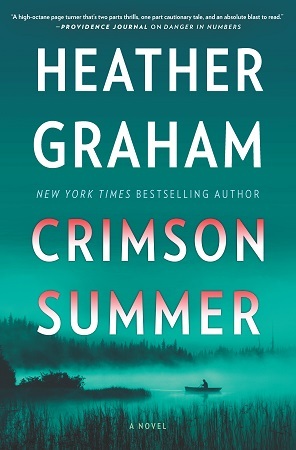 From New York Times bestselling author Heather Graham, suspense following agents from the FBI and Florida Department of Law Enforcement as they investigate a series of murders linked to conspiracy theorists and doomsday cults.
From New York Times bestselling author Heather Graham, suspense following agents from the FBI and Florida Department of Law Enforcement as they investigate a series of murders linked to conspiracy theorists and doomsday cults.
Just when FDLE agent Amy Larson thought she’d wrapped up her most chilling case, she was delivered a red toy horse–a not-so-subtle taunt from a Doomsday cult that she and FBI agent Hunter Forrest hoped they’d taken down. A apparent turf war in Seminole territory in North Florida is the scene of a bloody massacre, and the blame seems to lie with drug cartels out of South America. The trail will take the pair on a cross-country hunt, and deep into a world of conspiracy theories, greed and privilege, where a powerful, hidden group is trying to create civil unrest through violence.
CRIMSON SUMMER
Author: Heather Graham
ISBN: 9780778311829
Publication Date: April 5, 2022
Publisher: MIRA Books
Buy Links:
BookShop.org
Harlequin
Barnes & Noble
Amazon
Books-A-Million
Powell’s
Prologue
The sun was out, inching its way up in the sky, casting golden rays and creating a beautiful display of color over the shading mangroves and cypress growing richly in the area. The sunlight touched on the streams running throughout the Everglades, the great “River of Grass” stretching over two hundred acres in southern and central portions of Florida, creating a glittering glow of nature.
The sky was gold and red at the horizon, and brilliantly blue above, with only a few soft puffs of clouds littered about. Diamonds and crystals seemed to float on the water.
Such beauty. Such peace.
Then there was the crime scene.
The bodies lay strewn and drenched with blood. The rich, natural earth hues of the Everglades were caught in a surreal image, greens and browns spattered liberally with the color red as if an angry child had swung a sopping paint-brush around.
Aidan Cypress had never understood why the mocking-bird had been made Florida’s state bird—not when it seemed that vultures ruled the skies overhead. Never more so than today.
Now, as he stood overlooking the scene with his crew and special agents from the FDLE, trying to control the crime scene against the circling vultures, Aidan couldn’t help but wonder just what had happened and why it had happened this way—and grit his teeth knowing there would be speculation.
Stooping down by the body of a man Aidan believed to be in his midthirties—with dark hair, olive complexion, possibly six feet in height, medium build—he noted the shaft of an arrow protruding from the man’s gut.
All the dead had been killed with arrows, hatchets, axes and knives. Because whoever had done this had apparently tried to make it look like a historical Native American rampage.
Except the killers hadn’t begun to understand there were differences in the weaponry and customs between the nations and tribes of the indigenous peoples across the country.
In South Florida, the dead man’s coloring could mean many things; Aidan himself was a member of the Seminole tribe of Florida, though somewhere in his lineage, some-one had been white—most probably from northern Europe originally. He had a bronze complexion, thick, straight hair that was almost ebony…and green eyes.
South Florida was home to those who had come from Cuba, Central and South America and probably every island out there. The area was truly a giant melting pot. That’s how his family had begun. In a way, history had created the Seminole tribe because there had been a time when settlers had called any indigenous person in Florida a Seminole.
But while the killers had tried to make this look like a massacre of old, the dead men were not Seminole. They were, Aidan believed, Latino. He could see tattoos on the lower arms of a few of the dead who had been wearing T-shirts; a single word was visible in the artwork on the man in front of him—Hermandad.
Spanish for “Brotherhood.”
“What the hell happened here, Aidan?”
Aidan looked up to see that John Schultz—Special Agent John Schultz, Florida Department of Law Enforcement—was standing by his side.
John went on. “It’s like a scene out of an old cowboys and Indians movie!”
Aidan stared at John as he rose, bristling—and yet he knew what it looked like at first glance.
“Quaking aspen,” Aidan said.
“Quaking aspen?” John repeated blankly.
“It’s not native to this area. Look at the arrow. That wasn’t made by any Seminole, Miccosukee or other Florida Native American. That is a western wood.”
“Yeah, well, things travel these days.”
Aidan shook his head. He liked John and respected him. The older agent was experienced, a few years shy of retirement. The tall, gray-haired man had recently suffered a heart attack, had taken the prescribed time off and come back to the field. They’d worked together dozens of times before. He could be abrasive—he had a sometimes-unhappy tendency to say what he thought, before thinking it through.
A few years back John had been partnered with a young woman named Amy Larson. It had taken John a long time to accept her age—and the fact she was female. Once he’d realized her value, though, he’d become her strongest supporter.
But Amy wasn’t here today.
And Aidan missed her. She softened John’s rough edges.
She was still on holiday somewhere with Hunter Forrest, the FBI agent she’d started dating. They were off on an island enjoying exotic breezes and one another’s company minus all the blood and mayhem.
Aidan stopped lamenting the absence of his favorite FDLE agent and waved away a giant vulture trying to hone in on a nearby body.
Half of the corpses were already missing eyes and bits and pieces of skin and soft tissue.
Aidan sighed and looked around. There were twenty bodies, all of them male, between the ages of twenty and forty, he estimated.
Because he’d noted the tattoos on a few of them, and using his own years of experience, he theorized the dead were members of a gang. Florida had many such gangs. Most were recruits from the various drug cartels, resolved to hold dominion over their territories.
He looked at John, trying to be patient, understanding and professional enough to control his temper. “You know, you may be the special agent, but I’m the forensics expert, and this was not something perpetrated by any of the Florida tribes—or any tribe anywhere. I can guarantee you no one sent out a war party to slaughter some gang members. Someone tried—ridiculously—to make this look like some Natives did this.”
“Hey, sorry, you’re right. Forgive me—just…look around!” John said quickly and sincerely. “It’s just at first sight…well, I mean—wow. You’re right. I’m sorry.”
The apology was earnest. “Okay. Let’s figure out what really happened.”
The corpses were in something of a clearing right by a natural stream making its way through hammocks thick with cypress trees and mangroves and all kinds of underbrush.
While the area was customarily filled with many birds—herons, cranes, falcons, hawks and more—it was the vultures who had staked out a claim. The bodies lay with arrows and axes protruding from their heads, guts or chests, as if they’d fought in a bloody battle. And now they succumbed to decay on the damp and redolent earth.
John followed Aidan’s gaze and winced. “It’s a mess. Okay, well…all right. I’m going to go over and interview the man who found this.”
“Jimmy Osceola,” Aidan said. “He’s been fishing this little area all his life, and he does tours. Two birds with one stone. Members of his family work with him and all of them fish and take tourists out here. He has a great little place right off I-75. It’s called Fresh Catch, and his catch is about as fresh as it gets. Catfish. He’s a good guy, John.”
“I believe you. But we’re going to need a break here—you and your team have to find something for me to go on.”
Aidan stared at him, gloved hands unclenching at his sides. John was rough around the edges and said whatever came to mind, but he was a good cop.
He’d be hell-bent on finding out just what had gone on here.
Aidan told him what he’d heard. “Jimmy was out with a boatload of tourists—they’re right over there. See—two couples, a kid who just started at FIU and two middle-aged women. The first officers on the scene made sure they all stayed. Go talk to them. They look like they came upon a bloodbath—oh, wait, they did.”
John arched a brow to him and said, “Yeah. I got it.”
He headed off to talk to Jimmy Osceola and the group with him.
Aidan studied the crime scene again, as a whole.
First, what the hell had all these men been doing out here? A few of them looked to have been wearing suits; most were in T-shirts and jeans.
The few bodies he had noted—not touching any of them, that was the medical examiner’s purview—seemed to bear that same tattoo. Hermandad.
That meant a gang of enforcers in his mind, and he was sure it was a good guess.
Had a big drug deal been planned?
They were on state land, but it was state land traveled only by the local tribes who knew it. The park service rangers also came through, and the occasional tourist who arranged for a special excursion into the wilds.
Bird-watchers, often enough.
All they’d see today, however, would be the vultures.
“Aidan.”
He heard his name spoken by a quiet female voice and he swung around.
Amy Larson was not enjoying an exotic island vacation.
She was standing just feet from him, having carefully avoided stepping on any of the bodies, pools of blood or possible evidence. She was in a navy pantsuit, white cotton shirt and serviceable black sneakers—obviously back to work.
No matter how all-business her wardrobe, Amy had blue-crystal eyes that displayed empathy and caring. She was great at both assuring witnesses and staring down suspects.
“What are you doing here, Amy?” Aidan asked her. “You’re supposed to be sunbathing somewhere, playing in the surf with Hunter.”
“I was.”
“So what happened?”
“It was great. Champagne, chocolates, sun, surf, sand…” She sighed.
“And?”
“And a little red horse—like the one from last month’s crime scene—delivered right to the room,” she said.
Excerpted from Crimson Summer by Heather Graham, Copyright © 2022 by Heather Graham Pozzessere. Published by arrangement with Harlequin Books S.A.
About the Author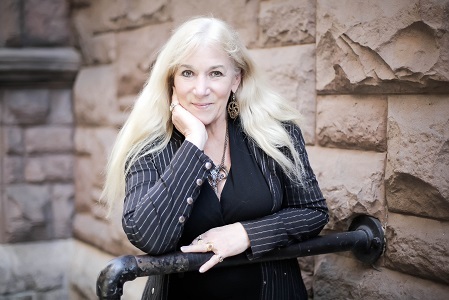
New York Times and USA TODAY bestselling author Heather Graham has written more than a hundred novels. She’s a winner of the RWA’s Lifetime Achievement Award, and the Thriller Writers’ Silver Bullet. She is an active member of International Thriller Writers and Mystery Writers of America. For more information, check out her website, TheOriginalHeatherGraham.com, or find Heather on Facebook.
Social Links:
Author Website
Twitter: @HeatherGraham
Instagram: @TheOriginalHeatherGraham
Facebook: @HeatherGrahamAuthor
Goodreads

The post New Release Spotlight — CRIMSON SUMMER: An Amy Larson & Hunter Forrest FBI Novel by Heather Graham appeared first on Quiet Fury Books.
April 6, 2022
New Release Spotlight — A FAMILY AFFAIR by Robyn Carr
 An exceptional storyteller, #1 New York Times bestselling author Robyn Carr beautifully captures the emotionally charged, complex dynamics that come with being part of any family. Readers will laugh and shed a few tears as they discover what it means to be loved, supported and accepted by the people who mean the most.
An exceptional storyteller, #1 New York Times bestselling author Robyn Carr beautifully captures the emotionally charged, complex dynamics that come with being part of any family. Readers will laugh and shed a few tears as they discover what it means to be loved, supported and accepted by the people who mean the most.
When a woman notices a young pregant woman attending her husband’s funeral she realizes his mid-life crisis went far beyond his weekend warrior lifestyle. But Carr’s story of a family dealing with their grief is full of surprises and as everyone examines their own beliefs and behavior, they become closer than they ever thought possible. Carr tackles the serious issues women face with humor and heart.
A FAMILY AFFAIR
Author: Robyn Carr
ISBN: 9780778331742
Publication Date: April 5, 2022
Publisher: MIRA
Buy Links:
BookShop.org
Harlequin
Barnes & Noble
Amazon
Books-A-Million
Powell’s
The celebration of life was not held in a funeral parlor or church but rather in a fancy clubhouse in an upscale Mill Valley community. It was furnished with comfortable sofas, chairs, small round accent tables, thick carpet and carefully chosen art. Its primary purpose was for hosting parties. Residents in the community could rent it for events, which Anna had done. There was a huge viewing screen upon which the pictures of Chad’s life played, a hundred and fifty of them, carefully and lovingly chosen by Anna with a little help from the kids. Every picture had Chad in it, starting from old childhood prints she’d inherited from Chad’s mother years ago. She’d glance up to see one of him in a high school football uniform looking the worse for wear with a big grin on his dirty face; she caught a huge blowup of their wedding picture; there was one soon after of him with baby Jessie asleep on his chest. There were many pictures of Chad alone, a few of Chad and Anna, one of a young Anna gazing lovingly up into Chad’s face, several family groupings. The focus was Chad, his life, his accomplishments, his achievements, his happiness, a few of the important people in his life. Chad, Chad, Chad. Just like before he died.
Things had been tense lately, but she remembered those younger years fondly because, although it hadn’t been easy, they had been deeply in love. They met through what can only be described as fate, as destiny. In fact, their meeting was a legendary family story. Anna had been in San Francisco, shopping on her lunch hour down at Fisherman’s Wharf. Shopping but not buying, which was typical for her as she had been and still was very frugal. She loved the sea lions, enjoyed watching tourists, sometimes found bargains at Pier 1, enjoyed the occasional meal on the pier.
On that day, something strange happened. She heard a panicked cry rise from the crowd of tourists on the pier, saw a food truck trundling across the pier without a driver, picking up speed. A man in work clothes and apron was chasing the truck. She only had seconds to take it in. It seemed the food truck, its awning out and moving fast, was headed toward a group of people. Right before her eyes the truck knocked a man off the pier before the truck was stopped by a barricade.
The man, completely unaware, flew off the dock and into the water below, startling a large number of fat sea lions who had been sunning themselves nearby.
The sea lions scrambled into the water and the man was flailing around in a panic. Someone yelled, “He can’t swim!” Hardly giving it a thought, Anna dropped her purse, kicked off her shoes and jumped off the pier, swimming to the man. Getting to him was no challenge; she practically landed on top of him. But he was hysterical and splashing, kicking and sputtering. “You’re okay, come on,” she said, grabbing his shirt by the collar. But he fought harder and sank, nearly pulling her under with him.
She slapped him in the face and that startled him enough he could let himself be rescued. She slid her arm around his neck and began pulling him to the dock where a couple of men seemed to be standing by to pull him in.
There was a lot of commotion, not to mention honking noises from sea lions. Anna was shivering in her wet clothes and all she could think at the time was how was she going to locate a change of clothes for her afternoon at work. Then there were emergency vehicles and a handsome young police officer draped a blanket around her shoulders and took a report. The near drowning victim was taken away in an ambulance and Anna was given a ride to her apartment by the cute policeman. She was delighted and surprised when the police officer called her a week later. She almost hyperventilated in hope that he’d ask her out.
“The man you pulled out of the water has been in touch. He wants your name,” the officer said.
“He isn’t going to sue me, is he?” she asked.
“I don’t think so,” he said with a laugh. “He seems very grateful. He won’t have any trouble tracking you down but I said I’d ask. He probably wants to thank you.”
The man’s name was Chad. He was finishing up his PhD at Berkeley while she was working in a law office in the Bay Area. She was twenty-three and he was twenty-seven and she was not prepared for how handsome he was and of course much better put together than when he was dragged out of the water.
He took her to dinner and, as she recalled, their first date was almost like an interview. He wanted to know everything about her and was utterly amazed to learn she’d had a job as a lifeguard in a community pool for exactly one summer when she was a teenager and yet jumped in to save him with total confidence. They fell in love almost instantly. The first time they made love, he asked her to marry him. She didn’t say yes right away, but they knew from the start they were made for each other. What they didn’t know was how many fights they’d have. Very few big fights but many small ones; she thought of them as bickering. They fought about what was on the pizza; a scrape on the side of the car that was not her fault, not even remotely; what kind of vacation they should have and where they should go. As Anna recalled, they always went where Chad wanted to go. They fought about what movie to see, where to eat, what was grumbled under his or her breath.
They fought seriously about his affair. That was in the distant past but it took a long time to get over. Years. But when they finally pledged to stay married, to do their best to make it good, they fell into bed and had the best sex of their lives. And they had Elizabeth.
That experience was how she knew that all the excuses for this current marital rift, no matter what he called it, was probably about another woman and not them growing apart or having divergent needs. He wouldn’t admit it and she had no proof, but she had better than average instincts. She believed he’d gotten all excited at the prospect of falling in love and was rewriting their history to make that acceptable. He was looking for an excuse that would make it reasonable to step outside the bonds of marriage. She could feel it; he’d been involved with someone else.
Excerpted from A Family Affair by Robyn Carr. Copyright © 2022 by Robyn Carr. Published by arrangement with Harlequin Books S.A.
About the Author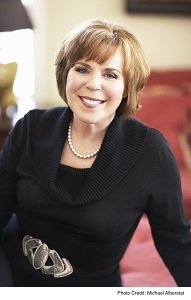 Robyn Carr is an award-winning, #1 New York Times bestselling author of more than sixty novels, including highly praised women’s fiction such as Four Friends, The Summer That Made Us and The View from Alameda Island, as well as the critically acclaimed Virgin River, Thunder Point and Sullivan’s Crossing series. Virgin River is now a Netflix original series. Robyn lives in Las Vegas, Nevada. You can visit her website at www.RobynCarr.com.
Robyn Carr is an award-winning, #1 New York Times bestselling author of more than sixty novels, including highly praised women’s fiction such as Four Friends, The Summer That Made Us and The View from Alameda Island, as well as the critically acclaimed Virgin River, Thunder Point and Sullivan’s Crossing series. Virgin River is now a Netflix original series. Robyn lives in Las Vegas, Nevada. You can visit her website at www.RobynCarr.com.
Social Links:
Author Website
Twitter: @RCarrWriter
Facebook: Robyn Carr
Instagram: @robyncarrwriter
Goodreads

The post New Release Spotlight — A FAMILY AFFAIR by Robyn Carr appeared first on Quiet Fury Books.
April 5, 2022
Advance Book Review — DAISY DARKER by Alice Feeney
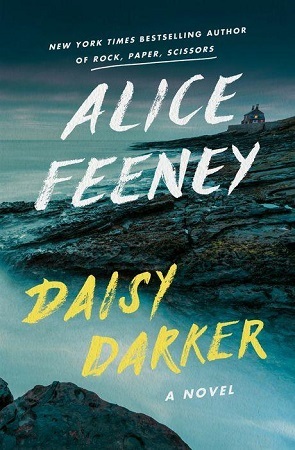
After years of avoiding each other, Daisy Darker’s entire family is assembling for Nana’s 80th birthday party in Nana’s crumbling gothic house on a tiny tidal island. Finally back together one last time, when the tide comes in, they will be cut off from the rest of the world for eight hours.
The family arrives, each of them harboring secrets. Then at the stroke of midnight, as a storm rages, Nana is found dead. And an hour later, the next family member follows…
Trapped on an island where someone is killing them one by one, the Darkers must reckon with their present mystery as well as their past secrets, before the tide comes in and all is revealed.
With a wicked wink to Agatha Christie’s And Then There Were None, Daisy Darker’s unforgettable twists will leave readers reeling.
Release Date: August 30, 2022
My ThoughtsDaisy Darker, what have you done to me?
This was such a fun, addictive read.
I loved the isolated setting. We’re stuck in an old beach house overnight, until the tide goes back out and the sandbar is accessible for escape. And family members are dying.
Most of the characters are unlikable, which is the point of it all. This family doesn’t get along, but they’re an interesting bunch, and they’re hiding lots of secrets.
I did guess the major twist at the end early on, though I constantly questioned my guess until it was finally revealed.
Alice Feeney has a way of creating claustrophobic atmosphere that makes me forget I’m able to close the book and walk away at any time.
*I received an ARC from Flatiron Books.*

The post Advance Book Review — DAISY DARKER by Alice Feeney appeared first on Quiet Fury Books.
New Mystery — RAZING STAKES: The De La Cruz Case Files by TG Wolff

 The first day of summer is the last day of a young accountant’s life. Colin McHenry is out for his regular run when an SUV crosses into his path, crushing him. Within hours of the hit-skip, Cleveland Homicide Detective Jesus De La Cruz finds the vehicle in the owner’s garage, who’s on vacation three time zones away. The setup is obvious, but not the hand behind it. The suspects read like a list out of a textbook: the jilted fiancée, the jealous coworker, the overlooked subordinate, the dirty client.
The first day of summer is the last day of a young accountant’s life. Colin McHenry is out for his regular run when an SUV crosses into his path, crushing him. Within hours of the hit-skip, Cleveland Homicide Detective Jesus De La Cruz finds the vehicle in the owner’s garage, who’s on vacation three time zones away. The setup is obvious, but not the hand behind it. The suspects read like a list out of a textbook: the jilted fiancée, the jealous coworker, the overlooked subordinate, the dirty client.
His plate already full, Cruz is assigned to a “special project,” a case needing to be solved quickly and quietly. Cleveland Water technicians are the targets of focused attacks. The crimes range from intimidation to assault. The locations swing between the east, west, and south sides of the city. This is definitely madness, but there is a method behind it.
The two cases are different and yet the same. Motives, opportunities, and alibis don’t point in a single direction. In these mysteries, Cruz has to think laterally, yanking down the curtain to expose the master minding the strings.
Book Details:Read an excerpt:Genre: Mystery
Published by: Down & Out Books
Publication Date: February 14, 2022
Number of Pages: 294
ISBN: 978-1-64396-245-0
Series: The De La Cruz Case Files, 3rd in series
Purchase Links: Amazon | Barnes & Noble | Down & Out Books
Ten minutes dead. The sun shined brightly, no clouds on this first day of summer, the last day of John Doe’s life. Cleveland police Detective Jesus De La Cruz squatted next to the broken body. The warmth beneath his hand testified to the newness of death.
Two EMTs had worked to sustain the man’s life. One was at the ambulance now, tending to the tools of his trade. The other stood over the body, shaking his head at the victim. “He was dead before we arrived, Detective. He just didn’t know it.” The EMT peeled off his gloves, finality in a simple act. “Damn it if we didn’t fight for him. In the end, he was just too crushed.”
Cruz rose looking east and west, north and south. The crime scene was on the side of a road halfway between East 9th Street and East 55th Street. North Marginal was a two-way street carved between Lake Erie and a spur off I-90 called the Shoreway. Properties cut off by the Shoreway—the Coast Guard station, Burke Lakefront Airport, a private marina, a condominium complex—were accessed from North Marginal. Even at the busiest times of day, vehicular traffic here was scant. Middle of a workday, a steady stream of runners arced around the first responders.
“Popular place,” Cruz said, meeting the eyes of a curious runner rubbernecking as he slowed to a jog.
“It is,” the EMT said. “Few better places downtown for running. A solid two and a half miles with no cross streets. Whoever hit him came from the east. Blew him up.”
The body spoke for itself. No way it could be where it was being hit from the west. Cruz straddled the curb, which was a generous term for the inch separating the driving surface from the running path. A bicycle wouldn’t call it an obstacle. John Doe either never saw it coming or was unable to get out of the way. The impact had launched him into the airport’s tall security fence. The fence bounced him back, the one-hundred-eighty-pound body a pinball rebounding off bumpers.
John Doe had been moved, necessary and appropriate as he’d been alive when he was found.
“Medical Examiner is en route,” the EMT said. “He’s yours now.”
“I’ll take care of him.” Cruz studied the victim. The man was mostly skin. He had taken off his shirt on the warm day, one of the first to be hot. A shirt lay on the edge of the path, marked by an evidence tag. Two other shirts lay close to the body; one black, one yellow and stained with blood.
The running shorts covered hip to mid-thigh. He wore socks, shoes, and a fitness device on his wrist. Skin was scraped off his arms, legs, chest, and face, the asphalt unforgiving. An AirPod was in his left ear, the right one missing.
Squatting again, Cruz felt the side seams of the shorts, finding zippered pockets. Inside the right one was a slim, card-size piece of plastic, a security badge for a building on East 9th Street. The dead man smiled out of a poor-quality image. Beneath was the name Colin McHenry.
“Detective, we found his phone,” one of the officers securing the scene called out. “It’s in good shape. Thumb print pass coded.”
“Open it before the ME takes him. Who found him?”
“A pair of runners. I parked them under the big tree.” The officer pointed across North Marginal to a small grove on a manmade hill. The two men waited anxiously under the tree, watching the activity. Both were runners. Both were shirtless. Both came to attention as Cruz approached and introduced himself.
“I’m Landon Chartres, this is Denny Bradford. We saw him as soon as we came around the bend. He was half in the street.” The otherwise straight line of North Marginal had a large curve bumping out to make space for an exit from the Shoreway. McHenry’s body would have been screened by the fence and shrubs separating the public from the airport’s private property.
“We knew someone was ahead of us,” Bradford said. “When you turn onto the Marginal, you can you see all the way to the curve.”
Chartres nodded like a bobblehead. “We saw the vehicle that must have hit him. It was the only one that passed us before we got to him. Black SUV. Part of the license plate was LDC. Those are my initials, so it caught my attention. I didn’t catch the make or model.”
Bradford looked behind him, to East 9th Street. He repeatedly shifted his weight from foot to foot. “He was only out of our sight to a few minutes. Would you say he had a five-minute lead, Landon?”
“At most. Probably more like three or four. We called 9-1-1 and pulled him out of the road. Anyone coming around the curve would have hit him. We used our shirts to try to stop the bleeding.”
As a pair of witnesses went, these two were easy, answering questions before he could ask them. They wanted to talk, maybe even needed to talk. “Did anyone pass you from behind, coming from East 9th going east?”
The pair looked at each other, huddled like they were on a pitcher’s mound deciding on a call. It was Chartres who answered. “We don’t think so, Detective, but we couldn’t swear to it. We weren’t paying that much attention. But the one that came toward us, the one with my initials, it was flying.”
“Is he going to make it?” Bradford asked, hope in his voice. “The ambulance got here fast. We kept pressure on his wounds, like they tell you to.”
“I’m sorry, he didn’t.” As if on cue, an engine started. The ambulance pulled away without a passenger.
***
Excerpt from Razing Stakes by TG Wolff. Copyright 2022 by TG Wolff. Reproduced with permission from TG Wolff. All rights reserved.
Guest Post by Author TG WolffHi Quiet Fury readers, I am TG Wolff. I write solvable mysteries, rich with the humor of real life. As you saw above, the third book in my De La Cruz casefile series was just released. Detective Jesus De La Cruz is a homicide detective with the Cleveland (Ohio) police department. He is 33 years old and has been working in homicide for about 2 years. Formerly, he was an undercover narcotics officer who needed to find a new role after he was badly injured in a bust gone wrong.
All of my stories, whether a short story or full length novel, start from a gem of an idea. Often, these come from real life, something that made me stop and think, something that made me curious. “What if” is my favorite question. It is the origin of all of the main plot lines in my De La Cruz casefile series.
Razing Stakes came out of the scandal in which the rich celebrities and others paid their way around college entrance requirements. “What if,” I asked, “that sort of willingness to bypass the order of things was taken to a higher level? What if it was taken to the highest level?”
All of the titles in the De La Cruz casefile series reflect back on the killer’s motivation. In Book 1, Exacting Justice, the killer had a calling to defend residents of Cleveland, Ohio from the criminal actions of the illicit drug trade. In Book 2, Driving Reign, the killer pressed relentless forward, preaching that rising waters raise all ships. In my new release, Razing Stakes, the killer attacked the constraints that were barriers to achieving their goals.
While each of Detective Jesus De La Cruz’s cases are inspired by an element of real life, they aren’t meant to provide a lesson. By nature, I am a highly curious person. For me, stories aren’t about teaching but about exploring. Every subject you can think of has multiple and differing points of view, all with some level of validity. Life isn’t as simple as good and bad, right and wrong. If it was, problems that societies face would have been solved long ago. I use this to my advantage, crafting mysteries with differing layers of motivation and results.
I write mysteries because I LOVE PUZZLES. Yes, in capital letters. Writing mysteries is one of the grandest types of puzzles, especially novel length, because of the number of balls that must be kept in the air. I work hard to make all of my mysteries solvable. In my perfect world, readers will come to the solution about three-quarters through the book. Some people have solved them faster and, of course, some do not solve them. Many people who do not solve them are not actively trying. They get their fun from the ride, not the puzzle.
I am also intrigued by the way people relate to each other. In addition to the mystery Cruz must solve, he also contends with juggling the relationship with his girlfriend, maintaining his sobriety, navigating the social drama of an ever growing circle of friends, and keeping his highly involved family happy. Just like everyone else. To quote John Donne, no man is an island and neither is my detective. Solving a murder is hard. Solving a murder while you balance your life…that’s just good, fun reading.
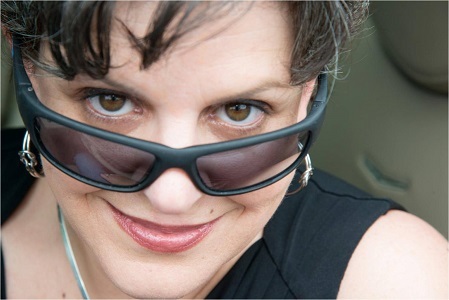
TG Wolff writes thrillers and mysteries that play within the gray area between good and bad, right and wrong. Cause and effect drive the stories, drawing from 20+ years’ experience in Civil Engineering, where “cause” is more often a symptom of a bigger, more challenging problem. Diverse characters mirror the complexities of real life and real people, balanced with a healthy dose of entertainment. TG Wolff holds a Master’s Degree in Civil Engineering and is a member of Mystery Writers of America and Sisters in Crime.
Catch Up With TG Wolff:TGWolffCom.wordpress.com
Goodreads
BookBub – @TG_Wolff
Instagram – @tg_wolff
Twitter – @tg_wolff
Tour Participants:
Visit these other great hosts on this tour for more great reviews, interviews, guest posts, and giveaways!
ENTER THE GIVEAWAY FOR A CHANCE TO WIN:This is a giveaway hosted by Partners in Crime Tours for TG Wolff. See the widget for entry terms and conditions. Void where prohibited.
Get More Great Reads at Partners In Crime Tours
The post New Mystery — RAZING STAKES: The De La Cruz Case Files by TG Wolff appeared first on Quiet Fury Books.
April 4, 2022
New Release Spotlight — SUMMER ON THE ISLAND by Brenda Novak
 For fans of Elin Hilderbrand and Nancy Thayer, New York Times bestselling author Brenda Novak’s newest standalone novel about friendship, family and the ties that bind and challenge us follows three friends as they escape to a coastal Florida town for the summer.
For fans of Elin Hilderbrand and Nancy Thayer, New York Times bestselling author Brenda Novak’s newest standalone novel about friendship, family and the ties that bind and challenge us follows three friends as they escape to a coastal Florida town for the summer.
Marlo Madsen has just been through a global pandemic that turned her life—and the lives of almost everyone she knows—upside down. Her beloved father has died from COVID. Helping her mother, who has MS, handle his estate means returning to the small coastal Florida town where she was raised.
Having just left her job as a divorce attorney—which paid well but showed her too much of the worst in people—she’s invited two friends to join her for a seaside summer. The two friends are also facing huge life changes after the worsening California wildfires took everything from them, and need to decompress and recuperate. And travel has long been forbidden, so they are beyond appreciative for the ability to escape.
Unfortunately, a restful summer doesn’t seem to be in the cards, especially when Marlo learns about a special provision in her father’s will that reveals he has a love child with Rosemarie, the housekeeper who’s worked for the family for years. Rosemarie’s son was around while Marlo was growing up, but she never suspected a thing. Nobody did. And once the news is revealed, the fallout will cause waves big enough to topple two families and a whole community.
Summer on the Island : A Novel
Brenda Novak
On Sale Date: April 5, 2022
9780778311850
Trade Paperback
$16.99 USD
400 pages
Buy Links:
Brenda Novak Store
Bookshop.org
Amazon
Barnes and Noble
Books-a-Million
Indigo
IndieBound
Walmart
CHAPTER ONE
Teach Island looked exactly the same as Marlow Madsen remembered it. Since the entire world had been disrupted by the pandemic, the comfort and familiarity of this place nearly brought tears to her eyes. Part of that was how strongly she associated it with her father. John “Tiller” Madsen, who’d gotten his nickname because of his love for sailing, had died a month ago. But the island had long been his escape from the rat race of Washington, DC, where he’d served as a United States senator for thirty years.
“I can’t believe I’m back. Finally,” Marlow said as she rolled down the passenger window to let in some fresh air.
Part of the archipelago of forty-five hundred islands off the coast of Florida, Teach was only seven square miles. Marlow loved its homey, small-town atmosphere. She also loved its white sand beaches and its motley collection of bars, restaurants, bait-and-tackle stores and gift shops, most of which, at least in the older section where they were now, had kitschy decor. Because the island was named after Edward Teach, or Blackbeard, one of the most famous pirates to operate in this part of the world in the early eighteenth century, there was pirate stuff all over. A black skull-and-crossbones flag hung on a pole in front of the most popular bar, which was made to look like a colonial-era tavern and was named Queen Anne’s Revenge after Blackbeard’s ship.
In addition to the Blackbeard memorabilia, there was the regular sea-themed stuff—large anchors or ship’s wheels stuck in the ground here and there, fishing nets draped from the eaves of stores and cafés, and lobsters, crabs and other ocean creatures painted on wooden or corrugated metal sides. Her parents had a house in Georgia, a true Southern mansion, as well as their condo in Virginia for when her father had to be in Washington. But this was where they’d always spent the summers.
Now that Tiller was gone, her mother was talking about selling the other residences and moving here permanently. Marlow hated the sense of loss that inspired the forever change, but since Seaclusion—her father’s name for the beach house—had always been her favorite of their homes, she was also relieved that her mother planned to keep it. This was the property she hoped to inherit one day; she couldn’t imagine it ever being out of the family. And after what so many people had experienced with the fires in California, where she’d been living since she graduated college, and all the hurricanes in recent years that had plagued Florida, she had reason to be grateful the house was still standing.
“Sounds like you’ve missed the place.” Reese Cantwell, who’d been sent to pick up her and her two friends, had grown even taller since Marlow had seen him last. His hands and feet no longer looked disproportionate to the rest of his body. She remembered that his older brother, Walker, had also reminded her of a pup who hadn’t quite grown into his large paws and wondered what Walker was doing these days.
“It’s a welcome sight for all three of us,” Aida Trahan piped up from the back. “Three months by the sea should change everything.”
Claire Fernandez was also in the back seat, both of them buried beneath the luggage that wouldn’t fit in the trunk. They’d met at LAX and flown into Miami together. “Here’s hoping,” she said. “Even if it doesn’t, I’m looking forward to putting my toes in the water and my butt in the sand.”
“You’ll get plenty of opportunities for that here,” Reese said.
Claire needed the peace and tranquility and a chance to heal. She’d lost her home in the fires that’d ravaged Malibu last August. To say nothing of the other dramas that’d plagued her this past year.
Marlow looked over at their driver. Apparently, since her father’s death, Reese had been helping out around the estate, in addition to teaching tennis at the club. His mother, Rosemary, had been their housekeeper since well before he was born—since before Marlow was even born. Marlow was grateful for the many years of service and loyalty Rosemary had given the family, especially now that Tiller had died. It was wonderful to have someone she trusted watch out for her mother. Eileen had multiple sclerosis, which sometimes made it difficult for her to get around.
“Looks as casual as I was hoping it would be.” Claire also lowered her window as Reese brought them to the far side of the island and closer to the house. Situated on the water, Seaclusion had its own private beach, as well as a three-bedroom guesthouse and a smaller apartment over the garage where Rosemary had lived before moving into the main house after Tiller died so she could be available if Eileen needed anything during the night.
“There are some upscale shops and restaurants where we’re going, if you’re in the mood for spending money,” Marlow told them.
“When have I not been in the mood to shop?” Aida joked.
“You don’t have access to Dutton’s money anymore,” Claire pointed out. “You need to be careful.”
Claire had lost almost everything. She had reason to be cautious. Aida wasn’t in the best situation, either, and yet she shrugged off the concern.“I’ll be okay. I didn’t walk away empty-handed, thanks to my amazing divorce attorney.”
Marlow always felt uncomfortable when Dutton came up, and sometimes couldn’t believe it wasn’t more uncomfortable for them. The way Claire and Aida had met was remarkable, to say the least. It was even more remarkable that they’d managed to become friends. But Marlow twisted around and smiled as though she didn’t feel the sudden tension so she could acknowledge Aida’s compliment. Although Marlow was only thirty-four, she’d been a practicing attorney for ten years. She’d jumped ahead two grades when she was seven, which had enabled her to finish high school early and start college at sixteen. A knack for difficult negotiations had led her to a law degree and from there she’d gone into family law, something that had worked out well for her. Her practice had grown so fast she’d considered hiring another attorney to help with the caseload.
She probably would’ve done that, if not for the pandemic, which had shut down every aspect of her life except work, making her realize that becoming one of the best divorce attorneys in Los Angeles wasn’t everything it was cracked up to be. No matter how much money she made, she didn’t enjoy dealing with people who were so deeply upset, and the richer, more famous the client, the more acrimonious the divorce. She hoped she’d never have to wade through another one. If a marriage worked, it could be wonderful. Her parents had proved that. But after what she’d witnessed with other people since passing the bar, she was beginning to believe Tiller and Eileen were the exception.
“All I did was make Dutton play fair,” Marlow said. “But at least you have some money you can use to get by while you decide what to do from here.”
“I liked being a trophy wife,” Aida grumbled. “I’m not sure I’m cut out for anything else.”
Like so many in LA, she’d been an aspiring actress at one time, but her career had never taken off. After she’d married Dutton, she’d spent more time at the tennis club, where she and Marlow had met, than trying out for any auditions.
“Don’t say that,” Marlow told her. “You can do a lot more than look pretty.”
Claire remained conspicuously quiet. She’d been subdued since they left, so subdued that Marlow was beginning to wonder if something was wrong.
“We’ll see.” Aida shrugged off the compliment as readily as she had the warning. “But before I have to make the really hard decisions, I deserve a break. So where’s the expensive part of the island again?”
Reese chuckled. “We’re almost there.”
“We’ll be able to play tennis, too,” Marlow told her. “The club’s only a mile from the house. And Reese is our resident pro.”
“No way! You play tennis?” Aida’s voice revealed her enthusiasm.
“Every day,” he replied.
“Can he beat you?” Aida asked Marlow.
“He was just a kid the last time we played, and he could take me about half the time even then. I doubt he’ll have any problem now.”
“I can see why you talked us out of renting a car,” Claire said, finally entering the conversation. “Considering the size of this place…”
“Like I told you before,” Marlow said, “most people walk or ride a bike.”
“You only need a car if you’re going off island,” Reese chimed in. He was driving them in Eileen’s Tesla.
Marlow was anxious to ask how her mother was doing but decided to hold off. If she questioned him while her friends were in the car, she’d probably get the standard “Fine.” But she wasn’t looking for a perfunctory answer. She wanted the truth. What he’d seen and heard recently. He was the one who’d been here. Marlow hadn’t been able to visit, not even when her father died. Thanks to the pandemic, they hadn’t been able to give him the funeral he deserved, either.
Reese glanced into the rearview mirror. “Are the three of you staying all summer?”
Marlow suspected he was hoping Aida, in particular, would be on the island for a while. Although Aida was thirty-six, fourteen years older than he was, she was a delicate blonde with big blue eyes. The way she dressed and accessorized, she turned heads, especially male heads, wherever she went.
“We are,” Aida said, and the subtle hint of flirtation in her voice told Marlow that she’d picked up on Reese’s interest.
“We have some big decisions to make in the coming months,” Marlow said, hoping to give Reese a hint that this wasn’t the opportunity he might think it was. Aida was on the rebound. She needed to put her life back together, not risk her heart on a summer fling.
“What kind of decisions?” he asked, naturally curious.
Claire answered for her. “Like what we’re going to do from here on. We’re all starting over.”
Reese’s eyebrows shot up as he looked at Marlow. “Meaning…what? You won’t be returning to LA?”
“I’m not sure,” she said. “I sold my condo and closed my practice before I left, just in case.”
His jaw dropped. “Really? But your mom said you’re one of the most highly sought-after attorneys in Los Angeles.”
No doubt her mother talked about her all the time. She’d heard a few things about Reese’s family, too, including the fact that he hadn’t finished school because he’d let partying come between him and a degree. But Marlow didn’t know Reese that well. She’d spent more time with his much older brother, Walker, when they were growing up. “It’s not that it wasn’t working out. It was. I’m just…done with divorce.”
He turned down the rap music he’d had playing since they got in. “Have you told your mother?”
“Not yet. I was afraid she’d try to talk me out of it. I know it’s sort of crazy to walk away from what I had going. Not many lawyers would do that. But after being quarantined for so long, working with people who almost always behaved their worst, I’m finished suffering through other people’s emotional turmoil.”
“Can’t say as I blame you,” Aida agreed. “I feel so bad about how Dutton treated you.”
Aida’s ex hadn’t just called Marlow names. He’d gotten her cell phone number from Aida, claiming he wanted to negotiate directly, and then proceeded to threaten her on more than one occasion. “We can all be glad Dutton’s out of our lives.”
“Amen,” Aida said, but again Claire said nothing.
They reached the gap in the shrubbery that signaled the beginning of her parents’ drive, and Reese turned into Seaclusion.
“Look at this!” Aida exclaimed. “It’s a whole compound.”
Reese parked in the detached four-car garage. “Welcome home,” he said with a grin.
Marlow had her carry-on with her, but when she went to the trunk to get the rest of her luggage, Reese insisted he’d bring it in.
She thanked him, put her bag down and, eager to see her mother, hurried to the house.
Rosemary was waiting on the stoop, where her mother would normally be. “It’s good to see you, Marlow.”
“Thanks, Rosemary. It’s good to see you, too. Is Mom okay?”
At fifty-five, Rosemary was five years younger than Eileen and tall and thin, like her two sons. They’d gotten their good looks from her—didn’t resemble their father at all, who wasn’t around anymore. Marlow could recall him showing up at the Atlanta house drunk and bellowing for Rosemary to “get her ass home.” It wasn’t any surprise to Marlow that the relationship hadn’t lasted. He’d abandoned the family when Reese was four or five.
“She’s fine. A little tired.” Although Rosemary smiled, she seemed anxious and uptight herself. Was it because of Eileen? Was she worse off than Marlow had been told?
“Is it anything to be concerned about?” Marlow pressed.
“No. She was so excited to see you that she couldn’t sleep last night. That’s all. She’s in her room resting if you want to go in.”
Anxious to reassure herself that nothing more serious was going on, Marlow introduced Aida and Claire to Rosemary, and while Rosemary led them to the guesthouse, where Reese was taking the luggage, Marlow went inside. “Mom?” she called as she moved through the living room.
“In here!” her mother called back.
Marlow’s stomach knotted as she reached the master bedroom and swung the door open wider. It was a beautiful day outside, not a cloud in the sky, yet the shades were drawn, making it dark and cool.
As soon as she reached the bed, she bent to kiss her mother’s paper-thin cheek. “I’m so glad to see you again.”
Eileen’s hands clutched her wrists. “Let me look at you. It’s been too long.”
“Who could’ve guessed a pandemic would come between us? That wasn’t something I even considered when I went so far from home.”
Once her eyes adjusted to the light, Marlow could see that the room hadn’t changed. Her father’s watch glimmered on the dresser, his slippers waited under the side chair and his clothes hung neatly in the closet as though he might walk through the door at any moment. Her mother hadn’t done anything with his personal property. That meant Marlow would have to deal with it, but she was actually grateful Eileen had waited. Touching his belongings was their only remaining connection to him, their only chance to say goodbye, and now they could do that together.
“Are you hungry?” her mother asked. “Rosemary made tea for you and your friends.”
Marlow sat on the edge of the bed. Eileen had thick dark hair and bottle green eyes—both of which Marlow had inherited—and looked good despite being so ill. But she was pale today and had lost significant weight. “That sounds wonderful,” Marlow said.
“I thought your friends might enjoy it. And I know how much you like clotted cream. When we were in London with your father several years ago, that was all you wanted to eat.”
The twinkle in Eileen’s eyes made Marlow feel slightly encouraged, until her mother winced as she adjusted her position. Eileen had to be feeling terrible, or she’d be up and around and asking to meet Aida and Claire.
“Are you having another attack?” Marlow asked. Her mother’s disease came in waves, or what they called “attacks.” Sometimes she grew worse for no clear reason—she didn’t do or eat anything different—and then she improved just as mysteriously. Although the steady decrease in her functionality attested to the fact that each attack took a little more from her…
“I must be. But don’t worry about me. It’s…more of the same. How was your flight?”
The lump that swelled in Marlow’s throat made it difficult to swallow. She’d already lost her beloved father. Was she going to lose her mother this year, too? The probability of Eileen’s dying had hung over their heads ever since she was diagnosed twenty-six years ago, so it’d come as a total shock that Tiller had died first. He’d never been sick a day in his life—until he got shingles. Then he’d spent five weeks in bed and simply didn’t wake up one morning. According to the autopsy, a blood clot had formed and traveled to his lungs.
“The flight was crowded and miserable,” she answered. “But aren’t all flights that way?”
“You should’ve come first class.”
Marlow thought about her decision to sell her place and close her practice but decided not to mention it until later. Eileen’s father had been a steel baron; she’d married into money, as well. She’d never known what it was like to struggle. Marlow hadn’t, either, but she was out in the world and much more cognizant of the difficulties faced by those who didn’t have quite as much. “I didn’t want to ask Aida and Claire to spend the extra money. You know what happened to Claire.”
“Yes. The poor thing. I’m so glad she had insurance to cover the rebuild. The fires in California have been awful. I’ve seen them on the news.” Eileen lifted her head to look toward the door. “Where are your friends?”
“Rosemary’s helping them get settled in the guesthouse.”
“I can’t wait to meet them.”
“They’re grateful to you for letting them come home with me. But with the way you’re feeling, maybe I should’ve come alone—”
“No, no,” she broke in. “They both needed a place to recoup, as you said. And having them here won’t hurt me. New friends might help fill the terrible void I’ve felt since Tiller…” Her voice cracked.
Marlow squeezed her hand, wondering if it was the emotional toll of losing Tiller that’d gotten the best of Eileen, rather than MS. “I miss him, too,” she whispered.
Her mother brought Marlow’s hand to her cheek. “It’ll be good to have you here for practical reasons, too. I think there’s something that has to be done with the estate.”
“What’s that?” Marlow asked in surprise.
“I don’t know. Samuel Lefebvre’s been calling me, trying to get me to come meet with him, but I told him you’re the one to talk to. I can’t face it.”
Sam was her father’s attorney and had been since Marlow could remember. He’d written her a character reference when she applied to Stanford, since he’d graduated from there himself, which was how she’d landed on the opposite coast. “I can handle it. It shouldn’t be hard. Most, if not all, of Dad’s estate will pass directly to you. Maybe he left me a few trinkets.”
“I’m sure he did. But Sam acts as though there’s business at hand, so he must need something.”
“You know Sam. He’s fastidious, always in a hurry to wrap things up. It won’t be a problem.”
A ghost of her mother’s former smile curved her lips. “You’re so capable. You’ve always been capable—just like your father.”
Marlow heard Rosemary come into the house with Aida and Claire. “Should I wait to introduce my friends to you until after we eat?”
“Maybe that would be best,” Eileen said. “It’ll give me the chance to rest a bit longer.”
“Of course. There’s no rush.”
“I can’t wait to spend more time with you. It’s comforting to know we have the whole summer.”
“It is.” Marlow hugged her mother, breathing in the welcome scent of her perfume before going out to join Aida and Claire in the dining room, where Rosemary had put a tea caddy filled with small sandwiches, crackers with herb spread, homemade scones and chocolate-covered strawberries. The clotted cream was in small dishes at the side of each plate.
“Looks delicious. I don’t think anyone in the UK could do it better.”
“Then I did it right,” Rosemary joked.
When Marlow sat down, she halfway expected Reese to join them, since she knew he was on the property, but he didn’t come in. As generously as her family had treated Rosemary and her boys, there’d always been a distinction between the family and the help. Marlow supposed that, in many situations like this, it was inevitable: there was a natural hierarchy when it came to employment.
“Reese has gotten so tall,” she remarked to Rosemary, helping herself to a cucumber-and-cream-cheese sandwich.
“He’s a handsome man,” Aida said.
Marlow shot her friend a warning look but didn’t dare say anything in front of Reese’s mother, who seemed to take the compliment at face value. “He’s six-four, as tall as his brother now,” she said proudly.
“What’s Walker been doing these days?” Marlow asked.
Rosemary used a towel to hold the hot teapot with both hands. “He’s living here on the island now.”
Marlow paused, her sandwich halfway to her mouth. “He left Atlanta to come here permanently? When?”
“As soon as he heard about COVID. Poor guy’s always felt he needs to be there for me and Reese,” she said with an affectionate chuckle. “I guess it’s no wonder since, growing up, he had to be the man of the house.”
Eileen hadn’t mentioned that Walker had moved to Teach, but at thirty-six, he probably didn’t come to the house much. “What part of the island does he live on?” Marlow asked. “He’s not staying above the garage, is he?”
“No, Reese is there now. Walker bought the cottage down by the cove. It’s not very big, but the setting is magnificent. I’ve never seen prettier sunsets than the ones I see from his front porch.”
Marlow liked the cove, too. The beach there was small and completely cut off from the other beaches, so it was often overlooked by tourists, which made it feel almost as private as the beach her family owned. “What does he do for a living?”
“He’s the chief of police.”
Marlow sat taller. “The chief of police?”
Rosemary shrugged off her surprise. “It sounds loftier than it is. There are only two other officers on the force.”
“But…how’d that happen? Last I heard, he was a street cop in Atlanta.” She remembered someone telling her that a friend had talked him into going into the academy. That had been a while ago—probably a decade—but Walker’s ascent still seemed quick.
“This is your oldest son?” Claire interrupted.
“It is,” Rosemary replied before answering Marlow. “He didn’t want to be separated from me or his brother during the pandemic, so he kept checking for jobs on the island—and he found one.”
“The chief of police quit or was fired or something?” Claire asked.
“No, Walker got on as a regular officer first,” Rosemary clarified. “But when the chief retired, he took over.”
“Do you have a daughter-in-law, too?” Aida asked. “Or any grandbabies?”
“Not yet,” Rosemary replied. “I bug Walker about finding a wife all the time, but he just laughs it off and tells me you can’t hurry love.”
“Maybe Reese will be the one to give you grandbabies,” Aida said.
“He’s got some growing up to do first,” Rosemary said and headed into the kitchen.
Marlow and Claire both gave Aida a pointed stare.
“What?” she said, lifting her well-manicured hands as though she’d done nothing wrong. “He’s twenty-two. It’s not as though he’s underage.”
Rosemary reappeared before they could say anything further. “Walker’s here,” she announced. “I needed a few things for the soup I’m making for dinner tonight, and he said he’d grab them for me.”
A knock sounded on the door. After Rosemary opened it, Marlow could hear Walker say, “Here you go. You’ll find some of those dark chocolate–covered almonds you like in the bag, too.”
Marlow could see a slice of Rosemary as she accepted the sack he handed her. “Thank you.”
“No problem. I’ll see you later.”
“Walker?” his mother said, calling him back. “Marlow’s home if you’d like to come in and say hello.”
There was a slight pause, which indicated he wasn’t thrilled with the idea. Marlow could understand why. They hadn’t exactly been close, at least not during their teenage years. But he eventually said, “Fine. But just for a minute. I have to get back to work.”
Excerpted from Summer on the Island by Brenda Novak, Copyright © 2022 by Brenda Novak, Inc. Published by MIRA Books.
About the Author
Brenda Novak, a New York Times and USA TODAY bestselling author, has penned over sixty novels. She is a five-time nominee for the RITA Award and has won the National Reader’s Choice, the Bookseller’s Best, the Bookbuyer’s Best, and many other awards. She also runs Brenda Novak for the Cure, a charity to raise money for diabetes research (her youngest son has this disease). To date, she’s raised $2.5 million. For more about Brenda, please visit www.brendanovak.com.
SOCIAL:
Twitter: @Brenda_Novak
Facebook: @BrendaNovakAuthor
Instagram: @authorbrendanovak
Goodreads

The post New Release Spotlight — SUMMER ON THE ISLAND by Brenda Novak appeared first on Quiet Fury Books.
April 1, 2022
Advance Book Review — ELSEWHERE by Alexis Schaitkin

Vera grows up in a small town, removed and isolated, pressed up against the mountains, cloud-covered and damp year-round. This town, fiercely protective, brutal and unforgiving in its adherence to tradition, faces a singular affliction: some mothers vanish, disappearing into the clouds. It is the exquisite pain and intrinsic beauty of their lives; it sets them apart from people elsewhere and gives them meaning.
Vera, a young girl when her own mother went, is on the cusp of adulthood herself. As her peers begin to marry and become mothers, they speculate about who might be the first to go, each wondering about her own fate. Reveling in their gossip, they witness each other in motherhood, waiting for signs: this one devotes herself to her child too much, this one not enough—that must surely draw the affliction’s gaze. When motherhood comes for Vera, she is faced with the question: will she be able to stay and mother her beloved child, or will she disappear?
Provocative and hypnotic, Alexis Schaitkin’s Elsewhere is at once a spellbinding revelation and a rumination on the mysterious task of motherhood and all the ways in which a woman can lose herself to it; the self-monitoring and judgment, the doubts and unknowns, and the legacy she leaves behind.
Release Date: June 28, 2022
My ThoughtsI loved this author’s previous book, Saint X, and I was super excited to receive an ARC of Elsewhere. Unfortunately, this book and I just weren’t a good match.
This story has the feel of an old fairy tale; a little bit ethereal, a little magical, but a lot hands-off. I didn’t feel the emotional connection I should have gotten from the heartbreaking content.
I also didn’t understand the point of it all. Where were these women disappearing to, and why? So many questions, all still unanswered.
The atmosphere and setting are immersive, and the writing is beautiful. No doubt many readers will love this book. I just don’t happen to be one of them.
*I received an ARC from Celadon Books.*
The post Advance Book Review — ELSEWHERE by Alexis Schaitkin appeared first on Quiet Fury Books.
March 31, 2022
Book Review — THE NIGHT SHIFT by Alex Finlay
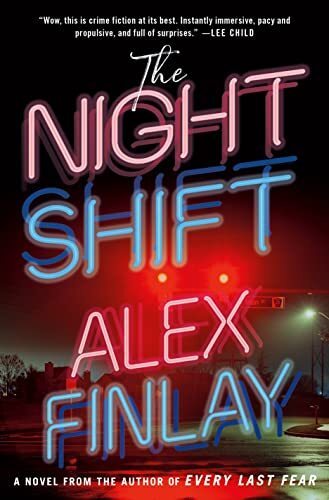
It’s New Year’s Eve 1999. Y2K is expected to end in chaos: planes falling from the sky, elevators plunging to earth, world markets collapsing. A digital apocalypse. None of that happens. But at a Blockbuster Video in New Jersey, four teenagers working late at the store are attacked. Only one inexplicably survives. Police quickly identify a suspect, the boyfriend of one of the victims, who flees and is never seen again.
Fifteen years later, more teenage employees are attacked at an ice cream store in the same town, and again only one makes it out alive.
In the aftermath of the latest crime, three lives intersect: the lone survivor of the Blockbuster massacre who’s forced to relive the horrors of her tragedy; the brother of the fugitive accused, who’s convinced the police have the wrong suspect; and FBI agent Sarah Keller who must delve into the secrets of both nights—stirring up memories of teen love and lies—to uncover the truth about murders on the night shift.
Twisty, poignant, and redemptive, The Night Shift is a story about the legacy of trauma and how the broken can come out on the other side, and it solidifies Finlay as one of the new leading voices in the world of thrillers.
Published: March 1, 2022
My ThoughtsI enjoyed The Night Shift, though not as much as I’d hoped.
The synopsis leads us to believe that Blockbuster, along with the threat of Y2K and all that drama, was to be a big part of this story. It’s really not, but the Blockbuster scenes are a fun blast from the past.
The present-day setting, with the new murders and the survivor from the past murders working as a therapist, is the main storyline.
The lead FBI agent on this case is a woman who is 8-½ months pregnant with twins. Sure, she’s badass. But, please. Any woman who has been pregnant, much less carrying twins, knows it’s highly unlikely you’ll be chasing down killers two weeks before your due date. I struggled with plausibility here.
The big reveal didn’t wow me. We’re left with several loose, dangling threads that you might or might not notice.
Still, this is a quick read that will likely keep you guessing through to the end.
*I received an eARC from Minotaur Books, via NetGalley.*
The post Book Review — THE NIGHT SHIFT by Alex Finlay appeared first on Quiet Fury Books.
March 28, 2022
SWEET HOME COWBOY: A Western-Themed Anthology with Stories by Maisey Yates, Nicole Helm, Jackie Ashenden, and Caitlin Crews

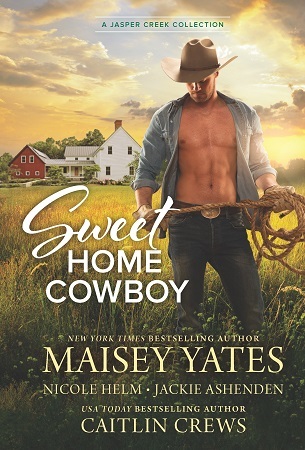 SWEET HOME COWBOY S is a Western-themed anthology featuring four stories from bestselling authors Maisey Yates, Nicole Helm, Jackie Ashenden and Caitlin Crews!
SWEET HOME COWBOY S is a Western-themed anthology featuring four stories from bestselling authors Maisey Yates, Nicole Helm, Jackie Ashenden and Caitlin Crews!
Four half sisters create the family they’ve always dreamed of in this enchanting quartet from bestselling authors Maisey Yates, Nicole Helm, Jackie Ashenden and Caitlin Crews.
The Hathaway sisters might have grown up apart, but when they agree to move to Jasper Creek, Oregon, to revitalize their grandfather’s farm, it seems a straightforward decision. Until they meet their neighborhood cowboys…
,br>Sweet-natured Teddy has never met a man worth taking a risk on, until now. Tomboy Joey has more affinity with farm equipment than men, until a brooding cowboy changes her mind. Prickly baker Georgie can’t resist the temptation of the most forbidden cowboy of all, and sparks fly between ceramicist Elliot and the grumpy single-dad rancher next door.
The sisters’ feelings are anything but simple, but with the love and support of each other, they discover that a cowboy might be the sweetest thing of all about coming home.
SWEET HOME COWBOY
Authors: Maisey Yates, Jackie Ashenden, Caitlin Crews, Nicole Helm
ISBN: 9781335639967
Publication Date: March 29, 2022
Publisher: HQN Books
Buy Links:
BookShop.org
Harlequin
Barnes & Noble
Amazon
Books-A-Million
PROLOGUE
It was never comfortable for people when four sets of violet eyes zeroed in on them with the level of intensity the Hathaway sisters could manage.
A fact the half sisters had learned when they’d first met at summer camp, thanks to their families, who’d been careful to give the girls the opportunity to meet each other, without the pressure of having to become friends or even real sisters.
But sisters they had become that first day at the age of thirteen. In each other, they’d found kindred spirits. Not just in the unusual color of their eyes, but in the depths of their passions, and in their driving need to forge family out of the fragments their father had left behind when he’d impregnated all their mothers at different points in the same year.
So that, as adults, though they lived in different parts of the country, they were the best of friends. Sisters, through and through, and when Georgie had informed them of Grandpa Jack’s heart attack in Jasper Creek, the rest had rushed to the small Oregon town to see what they could do.
Grandpa Jack looked at each of them with his usual squinty-eyed suspicion. Though their father had never made any effort to be a part of his daughters’ lives, Grandpa Jack had always made it clear he’d be there if needed.
But not to expect him to be cheerful about it.
“Didn’t all have to come,” he grumbled, shifting in his hospital bed.
“Well, of course we did. And we’ll stay until you’re on the mend,” Teddy said, patting his hand. The squinty-eyed suspicion became a full-fledged scowl as he pulled his hand away.
While Teddy was all about gestures of affection, Grandpa Jack was decidedly not.
Which made the fact Georgie was the only local granddaughter a blessing as she shared the discomfort with such goings-on. He turned his glare to her. “Didn’t have to call them.”
Georgie shrugged.
“She was right to,” Joey said firmly, meeting Grandpa Jack’s scowl with her own. “We won’t hear another complaint about it. A waste of time. You know how stubborn we are.”
Grandpa Jack grunted.
Elliot smirked. “Wonder where we got it.”
A nurse knocked on the door, then poked her head in. “Sorry, girls, it’s time to head home. Visiting hours are over.”
“Girls,” Elliot muttered under her breath with a considerable amount of disdain for the word.
But Teddy pressed a kiss to Grandpa Jack’s wrinkled forehead, Elliot touched his shoulder, and Georgie and Joey hovered at the door until they all left the room, chorusing goodbyes.
“I hate leaving him all alone,” Teddy said as Elliot linked arms with her. Teddy reached out and took Joey’s arm.
“He’ll be home soon enough,” Joey reassured her. She gave Georgie an apologetic shrug, then linked arms with her too, so they were a unit as they walked out of the hospital into the cool spring evening.
“He’s not going to let you fuss over him, Teddy. It isn’t his way,” Georgie said pragmatically as they walked to her truck.
Teddy frowned. “I think you misjudge my tenacity.”
Elliot’s eyebrows winged up. “Do we?”
Teddy wrinkled her nose, but didn’t argue with Elliot.
“I found an Airbnb closer to the hospital,” Georgie said, sounding tired as she climbed into the driver’s seat. “I knew this wouldn’t be a quick visit and we’d need more room than Felix and I have.” Georgie had grown up with her half brother right here in Jasper Creek.
The four sisters climbed into Georgie’s truck. Whatever belongings they’d packed were strapped into the bed of the truck from when Georgie had picked Joey and Teddy up at the airport this afternoon, after Elliot had driven down from Portland.
Georgie drove onto the highway, and it was only about fifteen minutes later she parked in front of a pretty little farmhouse just outside of Jasper Creek.
“This place is amazing,” Teddy said.
“Much better taken care of than the main house at Grandpa Jack’s property,” Georgie returned.
The women got out, grabbed what they’d need for the night, then headed inside.
“I’ll make us some dinner,” Teddy said, already moving for the kitchen.
“The host said she left some things for us to eat when we arrived,” Georgie replied, dropping her stuff in the front room.
They all descended on the kitchen, which was quaint and old-fashioned—something that suited all four women to the bone. On the table were a variety of baked goods.
“I found a teapot and some tea,” Teddy said.
“Scones and sweet rolls for dinner sounds good to me,” Joey said, already unwrapping the plate of baked goods and digging in.
Elliot found plates and set the table, shoving one at Joey as she’d already plowed through three-fourths of a scone.
“Do you think Grandpa Jack is stressed about the ranch? And that’s what caused this?” Teddy asked, fiddling with the stove.
“I think he’s an old man who eats poorly and smokes cigars regularly. But…” Georgie sighed.
“He’s been talking about selling off the last piece of land to Colt West next door. He’d keep the
cabin and about an acre around it, but the rest would go to Colt.”
“Even the main house?” Joey asked, as she licked crumbs from her fingers.
“You could hardly call it that these days. It’s falling apart at the seams.”
Teddy frowned. “That’s just not right.”
Georgie shrugged. “He hasn’t lived in that house in decades. He’s a single, old, grumpy man. He’s finally accepting he can’t really take care of the ranch. Why not sell?”
“It’s our legacy,” Joey said. Then she looked around the table. “Isn’t it?”
“It’s our absent father’s legacy,” Elliot returned. “Assuming he’s still alive.”
All eyes turned to Georgie, who was the only one who’d ever had any contact with Mickey Hathaway. She lifted her shoulders. “Far as I know.”
Silence filled the room until Teddy’s teakettle began to whistle. She poured tea for everyone, then took a seat at the kitchen table. As far as she was concerned, this was all fate. The timing, the chance of all four of them coming here at a point in their lives where they got to decide what came next.
“We’ve always talked about how much we wanted to live there, so why don’t we?”
“Why don’t we what?” Joey replied, mouth full with her last bite of scone.
“Live there. Do what we all love to do. Put together some kind of…business. Honey, eggs,” Teddy said, pointing to herself. “Produce,” she said, pointing to Joey. “Ceramics.” Elliot’s specialty. “Our sweet Georgie’s baked goods,” she said, grinning at Georgie’s negative reaction to being called sweet.
“Most of us are already selling our wares anyway. Why don’t we do it here? The four of us.”
It would be more than the year her mother wanted, more than just learning some independence. It would be actually, hopefully permanently, forging that independence. Well, with her sisters. Which suited Teddy better. She didn’t want to be alone. She wanted to be a part of a family. Her family.
“You’d move here all the way from Maine?” Joey asked dubiously. “Leave your mother?”
Teddy sniffed. “I can leave my mother.” Then she wrinkled her nose. Subterfuge wasn’t her
strong suit.
“She wants me to move out anyway.”
“Why?” her sisters demanded, offended on her behalf.
“She thinks I need a year of independence. To find my own way. Apparently twenty-five is too old to have always lived with your mother, according to her.”
When none of her sisters argued, she glared at them. “You agree with her?”
Elliot shrugged. “I don’t disagree with her.”
“Well, anyway, this would solve that, wouldn’t it? We can fix up the house. I’m sure some people need bee removal around here, so I’ll start a new hive. Buy new chickens. Elliot can drive her ceramics van down here. Joey, you could start the farm of your dreams with local produce and flowers—a brand-new challenge, all yours. Georgie, you can design the baking kitchen you’ve been planning since childhood. And we’ll be close enough to Grandpa to help him—and far enough away he won’t beat us away with sticks.”
They looked at Teddy, varying looks of consideration and concern on their faces. But as the idea took shape in Teddy’s mind, she knew it was exactly right. This wasn’t some new dream out of left field; it was an old dream.
And if she had to be independent, why not make that old dream a reality?
“We always wanted to live in one place. Like a real family,” Teddy said. She would have reached out and grabbed all their hands if she had three herself. As it was, she only looked at them imploringly. “Sisters. Live together. Work together. It’s the dream. Maybe something good can come out of Grandpa’s health scare. If Grandpa lets us live in the house, and we pool whatever our savings are together, it’s not a financial stretch. Elliot and I can keep our independent businesses running while we get our joint business set up. Then we split the farm profit four ways.”
“Profit. That is optimistic at best,” Georgie said.
“You know I am all about optimism,” Teddy returned.
A wind chime tinkled from the front room, which was odd considering there shouldn’t be enough wind to make it move here inside.
“Did someone leave the door open?” Joey asked, pushing back from the table. The girls got up and walked toward the door, which was indeed open.
“Look at that,” Elliot said.
They stepped out onto the porch together. Beyond the dogwood in the front just beginning to bloom, the sun was setting in a riot of colors—bright magentas, deep oranges, fading into lavenders and lighter pinks.
“It’s the most beautiful sunset I’ve ever seen.”
“That’s a tad dramatic, Teddy,” Georgie said gently, though her voice held all the awe of someone who agreed, but would never admit it.
“We have to do it,” Teddy said, her voice almost a whisper. “This is a sign. Don’t you believe in fate?”
Elliot nodded. “Yeah. I’m mobile. I go where I please. Why not right here?”
Georgie shrugged. “Don’t know about fate, but it wouldn’t change much for me, except you guys would be close. I’d like that. Felix is talking about leaving Jasper Creek.”
Teddy reached out, but Georgie stopped her with a quelling look. “It’s fine.” She offered a smile, or Georgie’s version of a smile anyway. “Especially if you guys are here.”
All eyes turned to Joey.
“I have to talk timing over with my mom. I don’t want to leave her short-staffed,” Joey said, her eyes still on the sunset. Then she pushed out a breath and looked at her sisters and grinned. “But why the hell not?”
Teddy smiled at the sunset, feeling a bit teary over the whole thing. But it was meant to be, she was sure of it. “Four Sisters Farm.” She looked at each of her sisters. “That’s what we can call it. Because it’ll be ours. Always.”
Excerpted from Sweet Home Cowboy by Nicole Helm, Maisey Yates, Jackie Ashenden, Caitlin Crews. Copyright © 2022 by Nicole Helm, Maisey Yates, Jackie Ashenden, Caitlin Crews. Published by arrangement with Harlequin Books S.A.
About the Authors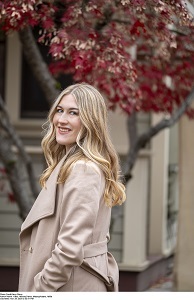 Maisey Yates is a New York Times bestselling author of over one hundred romance novels. Whether she’s writing strong, hard working cowboys, dissolute princes or multigenerational family stories, she loves getting lost in fictional worlds. An avid knitter with a dangerous yarn addiction and an aversion to housework, Maisey lives with her husband and three kids in rural Oregon. Check out her website, www.MaiseyYates.com or find her on Facebook.
Maisey Yates is a New York Times bestselling author of over one hundred romance novels. Whether she’s writing strong, hard working cowboys, dissolute princes or multigenerational family stories, she loves getting lost in fictional worlds. An avid knitter with a dangerous yarn addiction and an aversion to housework, Maisey lives with her husband and three kids in rural Oregon. Check out her website, www.MaiseyYates.com or find her on Facebook.
Social Links:
Website
Facebook: @MaiseyYatesAuthor
Twitter: @MaiseyYates
Instagram: @MaiseyYates
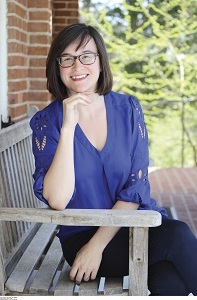 Nicole Helm writes down-to-earth contemporary romance and fast-paced romantic suspense. She lives with her husband and two sons in Missouri. Visit her website: www.NicoleHelm.com
Nicole Helm writes down-to-earth contemporary romance and fast-paced romantic suspense. She lives with her husband and two sons in Missouri. Visit her website: www.NicoleHelm.com
Social Links:
Website
Facebook: @AuthorNicoleHelm
Twitter: @Nicole_T_Helm
Instagram: @Nicole_T_Helm
 Jackie Ashenden writes dark, emotional stories with alpha heroes who’ve just got the world to their liking only to have it blown wide apart by their kick-ass heroines.
Jackie Ashenden writes dark, emotional stories with alpha heroes who’ve just got the world to their liking only to have it blown wide apart by their kick-ass heroines.
She lives in Auckland, New Zealand, with her husband the inimitable Dr Jax and two kids. When she’s not torturing alpha males, she can be found drinking chocolate martinis, reading anything she can lay her hands on, wasting time on social media, or forced to mountain biking with her husband.
Social Links:
Website
Facebook: @Jackie.Ashenden
Twitter: @JackieAshenden
Instagram: @Jackie_Ashenden
 Caitlin Crews is a USA Today bestselling, RITA-nominated, and critically-acclaimed author who has written more than 100 books and counting. She has a Masters and Ph.D. in English Literature, thinks everyone should read more category romance, and is always available to discuss her beloved alpha heroes. Just ask. She lives in the Pacific Northwest with her comic book artist husband, is always planning her next trip, and will never, ever, read all the books in her to-be-read pile. Thank goodness.
Caitlin Crews is a USA Today bestselling, RITA-nominated, and critically-acclaimed author who has written more than 100 books and counting. She has a Masters and Ph.D. in English Literature, thinks everyone should read more category romance, and is always available to discuss her beloved alpha heroes. Just ask. She lives in the Pacific Northwest with her comic book artist husband, is always planning her next trip, and will never, ever, read all the books in her to-be-read pile. Thank goodness.
Social Links:
Website
Facebook: @MeganCraneAndCaitlinCrews
Twitter: @MeganCrane
Instagram: @MeganMCrane
The post SWEET HOME COWBOY: A Western-Themed Anthology with Stories by Maisey Yates, Nicole Helm, Jackie Ashenden, and Caitlin Crews appeared first on Quiet Fury Books.



